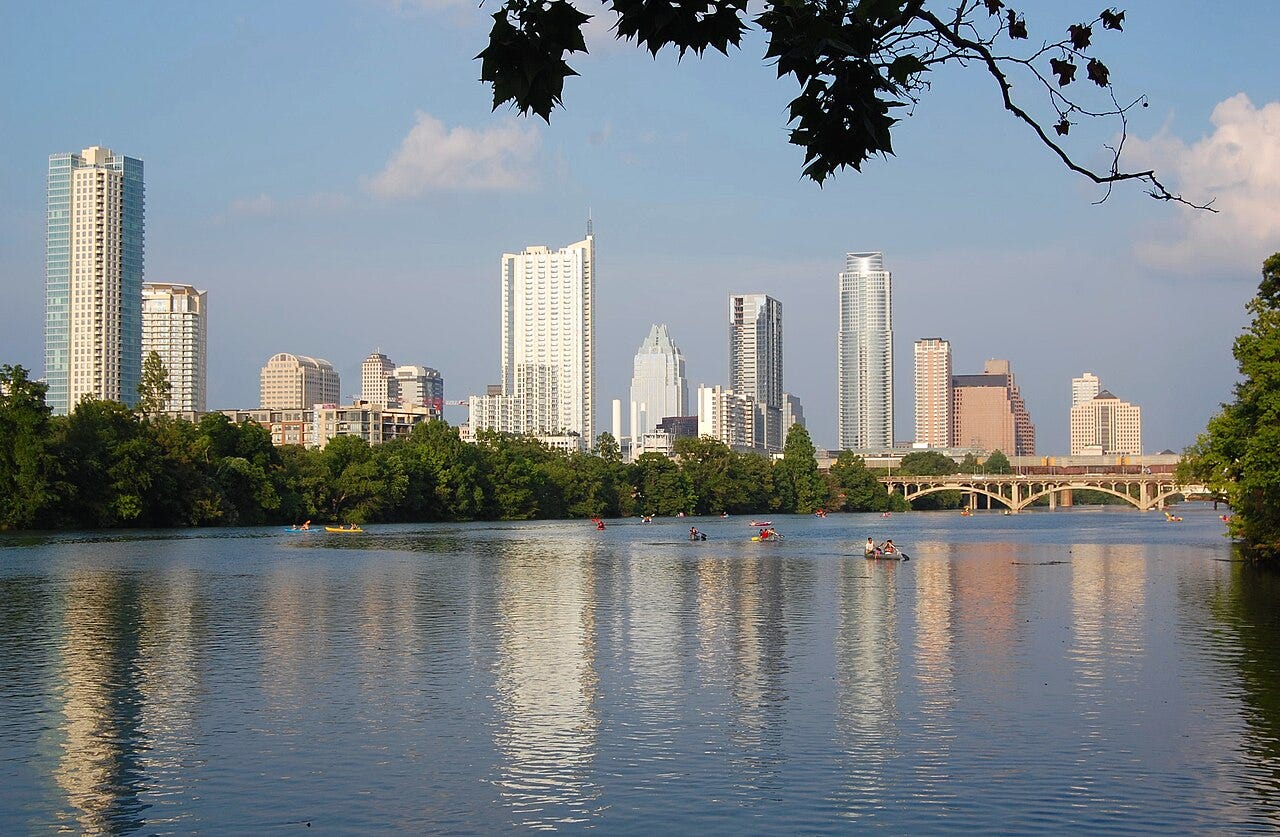On Denial
Resisting evil requires a willingness to see evil
“The category of bystander is not morally neutral. Bystanders were complicit. Their complicity enabled the horrors to proceed, unchecked.” –
Today, as I read Kristin Du Mez’s latest column on bystanders, it called to mind a 2006 column I wrote on the nature of mass-scale denial.
So, I pulled up my old column and looked at it again, and sadly, all these years later, I think it’s more relevant than ever.
It’s certainly relevant in the arena I write about the most – the Southern Baptist Convention and its non-reckoning with clergy sex abuse. Nowadays, we aren’t seeing progress on SBC abuse reform but are instead seeing institutional regression and the re-entrenchment of abuse-denialism.
It’s also relevant to what’s happening in our country, as so many of us keep trying to carry on with our ordinary lives in the face of mass-scale horrors. How can we confront such evil? (And that’s a word I don’t use lightly.)
Personally, I think the two are intertwined. What’s happening in the Church connects with what’s happening in our country.
By and large, the Southern Baptist Convention, and broad swaths of evangelicalism, are a system of white male power unchecked by accountability. That’s the same kind of system that many are trying to carry into our government and bring to bear in our whole nation.
So, in fighting against unaccountable white male power in the Church, we also resist the tyranny of unaccountable white male power in our country.
With minor revisions, below is my prior column, which was first published by Ethics Daily, now known as Good Faith Media. Let me know what you think. (And I hope you’ll also read
’s column, along with Timothy Snyder’s book On Tyranny – it packs a huge wallop for such a tiny book.)Elana’s father was smuggled out of Germany as an 8-year-old boy. Her grandparents and other paternal ancestors were all annihilated in the Holocaust. Many on her mother’s side were slaughtered as well.
During the many years I lived in Austin, Elana and I would take a weekly walk together around Lady Bird Lake. Though Elana is a decade younger than me, she often seemed centuries wiser.
Maybe it was because she had long pondered the dark side of humanity. Or maybe it was because she carries an ever-present awareness of mortality – the result of facing down cancer in her 20s. Or maybe it was just in her genes. Whatever the reason, I always felt graced by Elana’s pragmatic, eyes-wide-open wisdom.
Amidst talk of kids’ colds and Texas politics, we sometimes weighed in on weightier matters as well. Elana was one of the first people to whom I dared mention that I was sexually abused by a Baptist minister as an adolescent girl.
Elana came to a stand-still on the trail. She immediately saw the significance of my small statement and of the fact that I had never previously spoken of it.
Through the pink crepe myrtles of summer and the red sumacs of fall, Elana continued to listen as my story unfolded. While we fended off angry geese, she watched me work at coming to terms with the blasphemous brutality of what a Baptist minister did to me as a kid.
Elana kept on listening. She heard about my efforts at reporting the perpetrator to church and denominational leaders, and about my frustration at their grotesque oblivion.
Finally, she saw me unravel when I learned that, despite all my efforts, the man was still working in children’s ministry. That’s when Elana started tossing books my way.
She knows my weakness. I’m a bookaholic.
But the kinds of books Elana was tossing made no sense to me. It was all Holocaust literature – essays, poems, and memoirs. I couldn’t imagine how any of it could possibly have any bearing on the problem I was encountering.
“Denial,” she said. “You need to understand a whole lot more about the dynamics of mass-scale denial.”
I kept reading, but I resisted the analogy. I was uncomfortable with any comparison to the Holocaust because it seemed to trivialize the incomprehensible horror of it.
But Elana insisted. “The most important lesson of the Holocaust is about denial in the face of evil,” she said. “If people think they’re going to wait to see a genocide before they apply the lessons of the Holocaust, then the lessons of the Holocaust are lost.”
Evil is a shape-shifter. Recognizing it with the benefit of hindsight is not so hard. The trick is seeing it when it’s there in front of you, and finding a way to confront it at the time.
Why do good people do nothing in the face of evil?
That’s the question posed by the Holocaust. It is an ancient question that has arisen in countless other contexts.
Incomprehensible evil is done by trusted ministers who use spiritual authority to violate kids’ bodies for their own depraved ends.
Baptist leaders clearly have the power and the resources to cooperatively confront this pervasive evil. Yet they collude through silence and denial.
They blind themselves behind a self-made wall built with a perversion of autonomous polity and a faulty forgiveness theology. It is a wall that shields clergy predators and leaves kids in harm’s way.
No amount of labeling it “religion” will change what that wall really is.
It is moral and spiritual cowardice. It is denial in the face of evil.



Every bit of this!